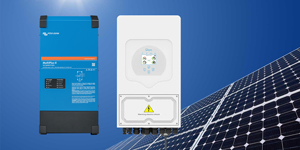LIFEPO4 MINIMUM CELL VOLTAGE
Lithium Battery Supplier
Lithium Battery Supplier, LiFePO4 Battery Wholesale. One Stop Services.
-
Solution LiFePO4 Battery Cell -
Solution Battery Active Equalizer
Lithium-Iron Phosphate (LiFePO4) battery cells have gained immense popularity in modern renewable energy systems, electric vehicles, and backup power applications due to their exceptional safety, long cycle life, and eco-friendly composition. However, maintaining optimal performance and extending the lifespan of these batteries requires precise monitoring of key parameters, including minimum cell voltage. The minimum cell voltage refers to the lowest voltage a LiFePO4 cell can safely operate at without compromising its functionality. Operating a cell at too low of a voltage can cause irreversible damage to its internal structure, reducing its capacity and lifespan. In general, it is recommended to maintain a minimum cell voltage of 2.3V per cell for most LiFePO4 batteries, although specific recommendations may vary depending on the manufacturer and application. Failing to ensure adequate cell voltage can result in a multitude of issues, including capacity fade, increased self-discharge, and even cell failure. Conversely, maintaining optimal cell voltage ensures optimal performance, extends the lifespan of the battery, and reduces the risk of unexpected failures. In addition to regular voltage monitoring, it is crucial to adhere to proper charging and discharging protocols to prevent overcharging and deep discharge events. By prioritizing minimum cell voltage and adhering to recommended operating ranges, LiFePO4 battery users can enjoy extended product lifespan, enhanced performance, and improved overall system reliability. Furthermore, proper voltage monitoring and management enable the efficient integration of LiFePO4 batteries into grid-scale energy storage, electric vehicles, and other applications.

 EU Stock
EU Stock Poland Stock
Poland Stock Ukraine Stock
Ukraine Stock  USA Stock
USA Stock AU Stock
AU Stock



















